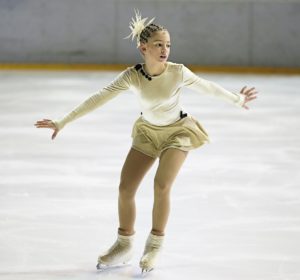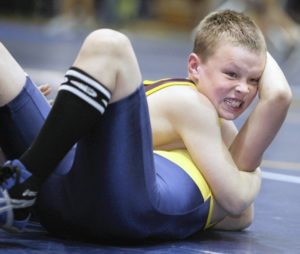Coach Daryl Weber spoke with Dr. Patrick Cohn, the president and founder of Peak Performance Sports (Windermere, Florida). Dr. Patrick J. Cohn teaches mental skills and sports psychology techniques to athletes, teams, and corporate professionals to help improve performance. The conversation about improving performance centered around athletes who are perfectionists.
Perfection… meaning improvement, betterment, refinement… Many athletes with “drive” will strive for perfectionism as they are always trying to better their skills to achieve the top accolades for their sport. However the journey towards perfectionism can be a struggle coupled with frustration for both athlete and coach.
In reality, athlete perfectionist can be a “dream” for coaches. These are the athletes that show up early to practice and stay late, always honing their skills. They have a great “practice” mentality. The frustration comes when they enter competition and under-perform. It becomes discouraging to both athlete and coach.
 Some sports can be judged on perfectionism alone, like skating and gymnastics. But that isn’t true of ALL sports. When it comes to competition, it’s all about reaction. Perfectionists will take all that training, analytic mentality, and try-hard mentality… but when you are in competition, it’s all about reaction and trusting your skills. The perfectionist has a hard time letting go of the training mentality during competition.
Some sports can be judged on perfectionism alone, like skating and gymnastics. But that isn’t true of ALL sports. When it comes to competition, it’s all about reaction. Perfectionists will take all that training, analytic mentality, and try-hard mentality… but when you are in competition, it’s all about reaction and trusting your skills. The perfectionist has a hard time letting go of the training mentality during competition.
Daryl agrees that for wrestling, he sees this often. He’s seen many wrestlers get very good, but when competition came, they “took a back seat” to someone who was supposedly better. In his own experience, in his senior year of college, he tried to trick himself into thinking the match was not a big deal in order to alleviate his stress. This tactic became part of his mental game plan that year and helped him to become an NCAA Champion.
Disadvantages of Perfection
It can be a challenge to help a perfectionist with his/her mental game, because the mentality is “if I’m not perfect, then I’m not doing well”. The perfectionist sets super high expectations and then if he doesn’t make those expectations, his confidence level drops. It’s a recipe for disaster.
You want the reverse: to create a lower expectation with higher confidence. Perfectionists don’t have a high level of trust in themselves during competition. Perfectionists also worry too much about what others think. A perfectionist will be looking for social approval, gaining respect, and not wanting to disappoint anyone. Those are their top challenges.
Winning Ugly
One of the ways in which coaches can help overcome perfectionism, is to teach athletes how to “win ugly”… to go into competition NOT focusing on all the technical components. Daryl mentions that in wrestling, he’s seen many athletes that won’t bother to try to score points, if the setup isn’t perfect. He goes on to say those situations need to be worked on in the practice room. Yes, coaches need to do technical work, but they also need to do “live” wrestling and allow the kids to figure it out on their own. Oftentimes, coaches spend too much time on the technique and not enough time on the “live” wrestling that will allow kids to “win ugly”.

Some of the best wrestling matches come about when it’s pure grit and determination – functional vs. perfect performance. Perfectionists can get caught up in wanting everything to be perfect… Dr. Cohn calls it a “triple whammy”: the athlete wants it to look good, feel good, and of course get a good score. If one of those doesn’t come through, a perfectionist will really struggle. They want to take the perfect moves out there and get the perfect score. When you try to teach them “win ugly” they get caught up in what it might “look” like. Winning Ugly doesn’t mean “looking ugly” while performing. It means going out and getting the work done in the best way that one can get it done. Winning ugly is about getting the points, not HOW you are getting the point.
It’s a mindset that has to be developed in practice over time. An athlete may go to competition and things don’t go his way immediately, we need to train them to not dwell in the past. Take the competition 1 point at a time. Always be focusing on how to get the NEXT point.
What kind of a strategy can athletes use pre-match? Oftentimes, all kinds of things are going through an athlete’s head before competition. The thoughts can be largely negative. To overcome this starts with the warm-up. The warm-up is not just about stretching, etc. it’s about the mental warm-up, letting go of expectations and focusing on the process and staying in the moment, dealing with self intimidation by not looking at and not comparing yourself to the competition.
Then fuel your own confidence, do positive self-talk and go through your best moves in your mind. Prepare to perform functionally and prepare to trust. Embrace the jitters. It’s a natural reaction, and can be useful in order to focus better. Coaches should be teaching athletes to make a plan and process.
This is just a small sample of the insights that Dr. Cohn shared with me. The entire interview is hosted in the Youth Athlete Academy.
About Dr. Patrick Cohn:

As the president and founder of Peak Performance Sports (Windermere, Florida), Dr. Patrick J. Cohn teaches mental skills and sports psychology techniques to athletes, teams, and corporate professionals to help improve performance.
In addition to working with tennis players and teams, Dr. Cohn teaches parents, coaches and athletic trainers how to help athletes achieve peak performance through mental game skills training.
Having earned his doctoral degree in Education specializing in Applied Sports Psychology from the University of Virginia (1991), Dr. Cohn has extensively interviewed and coached thousands of athletes to develop mental strategies to enter “the zone” faster and stay there longer.
Experts in the field of sports psychology regard him as the leading authority for entering the zone and pre-competition routines. Dr. Cohn also teaches his mental game coaching system, the MGCP certification program (Mental Game Coaching Professional) to qualified coaches, trainers, and sports psychology students in training.

2 thoughts on “Change Your Practice Mentality And Stop Underperforming On Game Day”
Comments are closed.